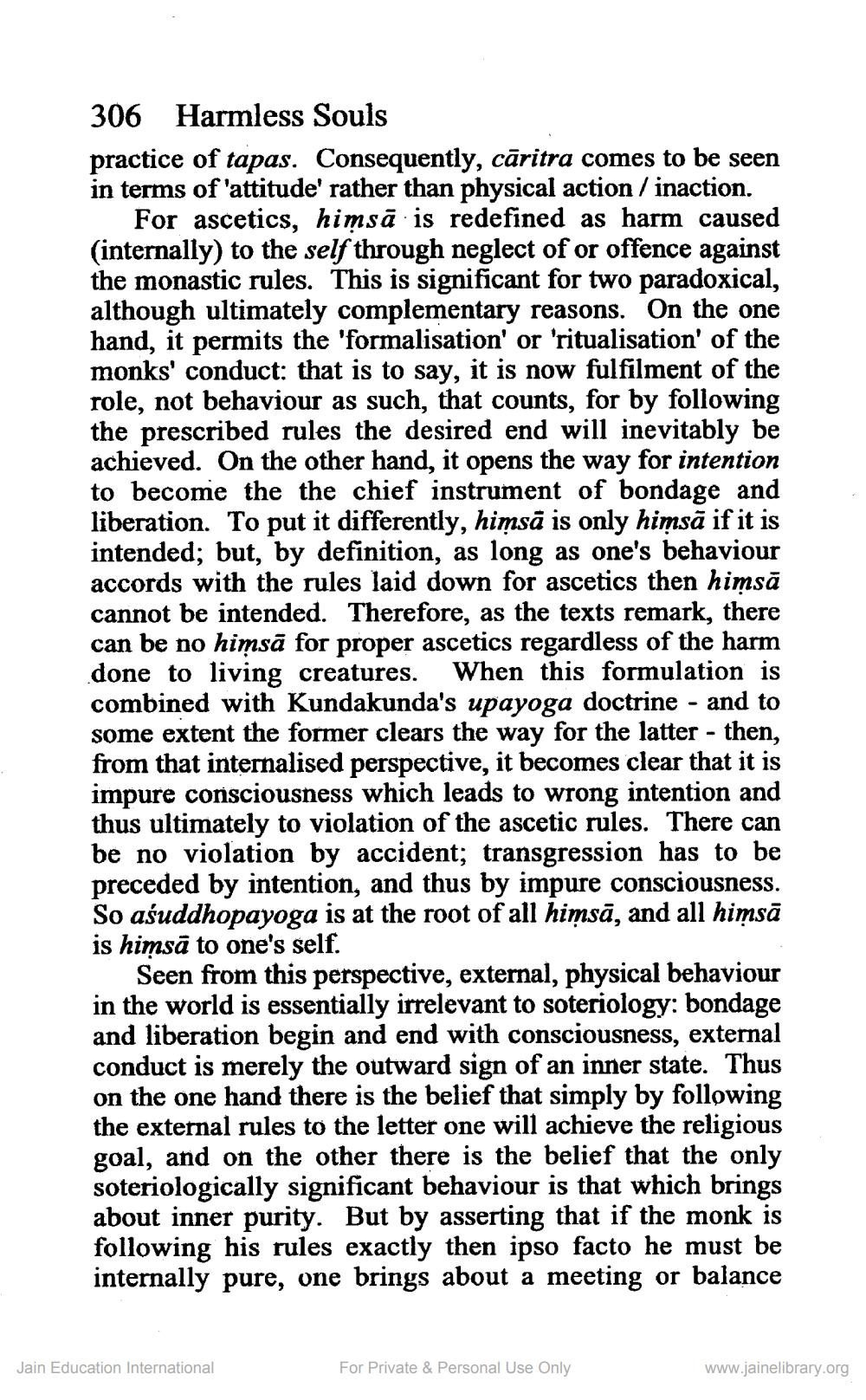________________
306 Harmless Souls practice of tapas. Consequently, cāritra comes to be seen in terms of 'attitude' rather than physical action / inaction.
For ascetics, himsā is redefined as harm caused (internally) to the self through neglect of or offence against the monastic rules. This is significant for two paradoxical, although ultimately complementary reasons. On the one hand, it permits the 'formalisation' or 'ritualisation of the monks' conduct: that is to say, it is now fulfilment of the role, not behaviour as such, that counts, for by following the prescribed rules the desired end will inevitably be achieved. On the other hand, it opens the way for intention to become the the chief instrument of bondage and liberation. To put it differently, himsā is only himsā if it is intended; but, by definition, as long as one's behaviour accords with the rules laid down for ascetics then himsā cannot be intended. Therefore, as the texts remark, there can be no himsā for proper ascetics regardless of the harm done to living creatures. When this formulation is combined with Kundakunda's upayoga doctrine - and to some extent the former clears the way for the latter - then, from that internalised perspective, it becomes clear that it is impure consciousness which leads to wrong intention and thus ultimately to violation of the ascetic rules. There can be no violation by accident; transgression has to be preceded by intention, and thus by impure consciousness. So aśuddhopayoga is at the root of all himsā, and all himsā is himsā to one's self.
Seen from this perspective, external, physical behaviour in the world is essentially irrelevant to soteriology: bondage and liberation begin and end with consciousness, external conduct is merely the outward sign of an inner state. Thus on the one hand there is the belief that simply by following the external rules to the letter one will achieve the religious goal, and on the other there is the belief that the only soteriologically significant behaviour is that which brings about inner purity. But by asserting that if the monk is following his rules exactly then ipso facto he must be internally pure, one brings about a meeting or balance
Jain Education International
For Private & Personal Use Only
www.jainelibrary.org




